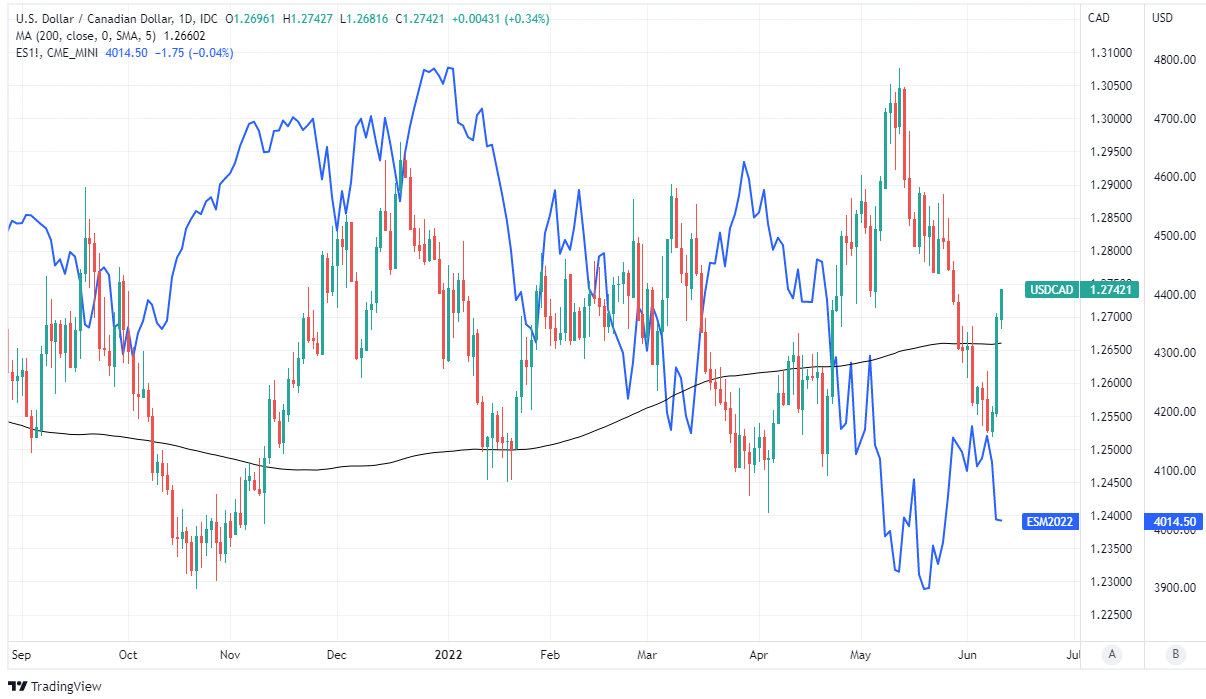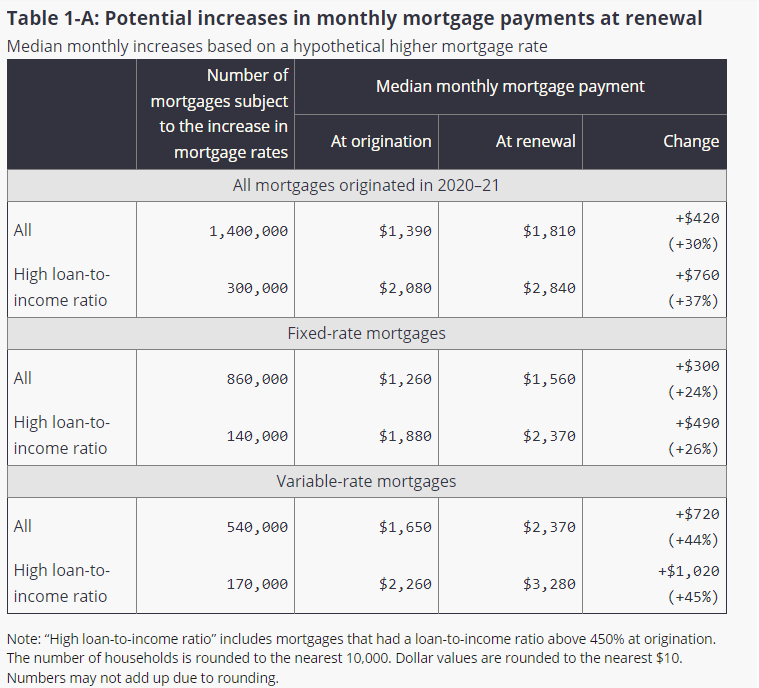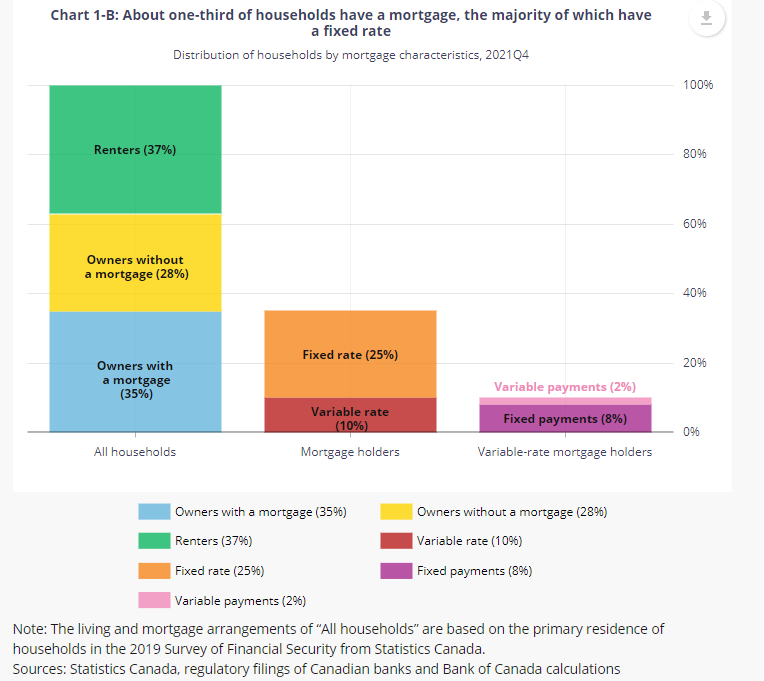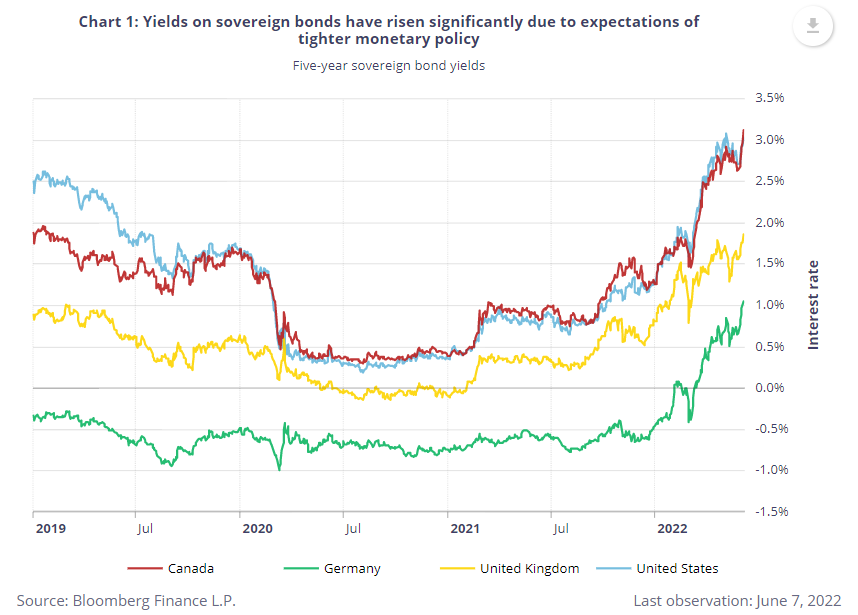Canadian Dollar Sold and U.S. Dollar Bought at TD Securities with 1.30 Target
- Written by: James Skinner
“We think we have passed peak optimism in CAD. Indeed, the CAD is one of the most over-loved currencies on our market dashboard. We also see signs that the USD is ready to stage a comeback and risk sentiment will sour in the near-term,” Mazen Issa, TD Securities
Image © Adobe Images
The Canadian Dollar fell sharply from one month highs when stock markets slumped across the globe during the latter half of this week but strategists at TD Securities say it likely has further to fall up ahead and have suggested that clients position themselves for a USD/CAD rally to 1.30.
Canada’s Dollar ceded its position as the best performing major currency within the G10 grouping for 2022 when following stock indices and other bellwethers of risk appetite lower during the Thursday trading session and was also one of the clear underperformers on Friday.
The Canadian Dollar rose against Sterling on Friday but was otherwise lower against all major currencies after the all-important USD/CAD exchange rate rose back above the 1.27 handle heading into the final session of the week.
“While we enter the trade after USDCAD has breached through the 200dma, we think that the market is overlooking the housing impact in the coming months,” says Mazen Issa, a senior FX strategist at TD Securities, after suggesting that clients buy USD/CAD around 1.2680.
 Above: USD/CAD shown at daily intervals with 200-day moving-average in black and S&P 500 stock index in blue. Click image for closer inspection.
Above: USD/CAD shown at daily intervals with 200-day moving-average in black and S&P 500 stock index in blue. Click image for closer inspection.
Compare GBP to CAD Exchange Rates
Find out how much you could save on your pound to Canadian dollar transfer
Potential saving vs high street banks:
C$4,450.00
Free • No obligation • Takes 2 minutes
“We think we have passed peak optimism in CAD. Indeed, the CAD is one of the most over-loved currencies on our market dashboard. We also see signs that the USD is ready to stage a comeback and risk sentiment will sour in the near-term,” Issa said in a Thursday note to clients.
One of the foremost factors cited by TD Securities when selling the Loonie was a Bank of Canada (BoC) monetary policy that has recently been highly supportive of the currency but which may now be in the process of turning from a tailwind into a headwind.
The recommendation came hard on the heels of a speech from Governor Tiff Macklem who made clear on Thursday, in a press conference announcing the Financial System Review of 2022, that the BoC could be likely to lift its interest rate by as much as 0.75% next month.
This prospect was in large part attributed to the impact that recent increases in inflation have had on households’ expectations for inflation up ahead.
 Source: Bank of Canada. Click image for closer inspection.
Source: Bank of Canada. Click image for closer inspection.
Compare GBP to CAD Exchange Rates
Find out how much you could save on your pound to Canadian dollar transfer
Potential saving vs high street banks:
C$4,450.00
Free • No obligation • Takes 2 minutes
“Following last week's BOC meeting and a hawkish speech by Deputy Governor Beaudry, the market panicked and rushed to price in the optionality of hiking 75bp in July. Governor Macklem confirmed that this is a possibility at the Financial System Review press conference,” TD’s Issa said on Thursday.
“We think it is a heroic assumption to expect the BOC to out-hike the Fed given the relative health of household balance sheets/indebtedness particularly given the impact of higher rates on mortgage payments and the breakdown of fixed/variable-rate mortgages,” he added.
The market’s scramble in the last week to price-in the risk of such a large increase in the BoC cash rate has left expectations for Canadian borrowing costs running ahead of those for the Federal Reserve and the TD Securities team views Canada’s central bank as unlikely to ‘outhawk’ the Fed.
Issa and the TD team’s confidence in this idea was bolstered further on Thursday when Governor Macklem unveiled estimates of the extent to which many Canadian households’ mortgage payments could be likely to rise in the years ahead due to recent and expected increases in the cash rate.
 Source: Bank of Canada. Click image for closer inspection.
Source: Bank of Canada. Click image for closer inspection.
Compare GBP to CAD Exchange Rates
Find out how much you could save on your pound to Canadian dollar transfer
Potential saving vs high street banks:
C$4,450.00
Free • No obligation • Takes 2 minutes
Specifically, Governor Macklem noted that a “historically large number of households” elected in favour of variable interest rate mortgages during 2020 and 2021, which was also a period marked by record lows for the cash rate and equally historic gains for house prices.
“These households will see the largest rate increase because they took out a mortgage when rates were at or near record lows. This is particularly true for the historically large number of households that opted for variable-rate mortgages,” the BoC said on Thursday.
This suggests that Canadian households and Canada’s overall economy could be quicker to feel the impact of the BoC’s interest rate rises than their counterparts across the southern border in the United States, meaning that the BoC’s tightening cycle maybe less sustainable than the Fed’s.
When coupled with the increasingly limited further upside potential of the BoC’s cash rate and the still live risk of a further hawkish repricing of the Federal Reserve policy outlook, this indicates that risks for USD/CAD are shifting higher and explains why the TD Securities’ team is a buyer of it.
 Source: Bank of Canada. Click image for closer inspection.
Source: Bank of Canada. Click image for closer inspection.
Compare GBP to CAD Exchange Rates
Find out how much you could save on your pound to Canadian dollar transfer
Potential saving vs high street banks:
C$4,450.00
Free • No obligation • Takes 2 minutes





